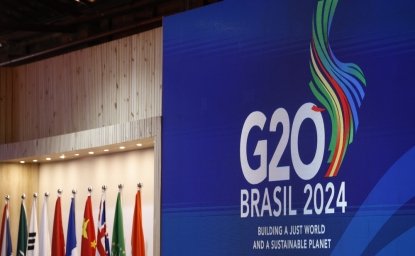The State of Peacebuilding in Africa: Lessons Learned for Policymakers and Practitioners

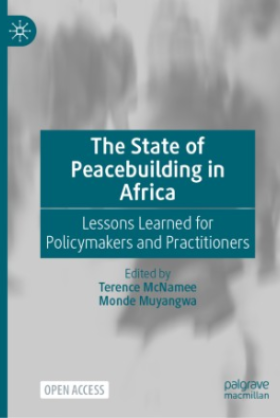
Related Event
-
Peacebuilding has been near the top of the global agenda for a quarter of a century. Funding for peacebuilding activities has grown year after year, decision makers and practitioners can access a vast literature on peacebuilding policy and experiences, and the reasons why societies relapse into conflict are well known. Despite this, the challenge of how to rebuild societies following conflict has not become easier.
The State of Peacebuilding in Africa: Lessons Learned for Policymakers and Practitioners analyzes the last 30 years of peacebuilding in Africa and brings together the work of distinguished scholars, practitioners, and decision makers to analyze critically the evolution and current state of peacebuilding in Africa. The book features key lessons learned, best practices, and creative solutions that address varying dimensions of peacebuilding, including conflict prevention, mediation, management, and post-conflict reconstruction. In addition to six country and regional case studies on the Democratic Republic of the Congo, Rwanda, Sierra Leone, Sudan/South Sudan, Mozambique, and the Sahel/Mali complement the analysis. Each chapter concludes with a set of key recommendations to inform the building of a more sustainable peace in Africa.
The book is available via Open Access.
The State of Peacebuilding in Africa was born out of the activities of the Southern Voices Network for Peacebuilding (SVNP). The SVNP is a continent-wide network of African policy, research and academic organizations that works with the Wilson Center’s Africa Program to bring African knowledge and perspectives to U.S., African, and international policy on peacebuilding in Africa. Established in 2011 and supported by the generous financial support of the Carnegie Corporation of New York, the project provides avenues for African researchers and practitioners to engage with and exchange analyses and perspectives with U.S., African, and international policymakers in order to develop the most appropriate, cohesive, and inclusive policy frameworks and approaches to achieving sustainable peace in Africa.
Authors
 Paul D. WilliamsFormer Fellow;
Paul D. WilliamsFormer Fellow;
Professor of International Affairs and, Associate Director, M.A. Security Policy Studies Program, The George Washington UniversityVera SongweExecutive Secretary, United Nations Economic Commission for Africa and, Nonresident Senior Fellow, Africa Growth Initiative, Brookings InstitutionLudovic LadoFormer Southern Voices African Research Scholar;
Director of Institute of Human Rights and Dignity, Center of Research and Action for PeaceBetty BigombeFormer Distinguished African Scholar;
Senior Fellow, United States Institute of Peace; Formerly served as Ugandan Minister of State, Deputy Minister and Project Manager for the African Development BankIbrahim WaniIndependent Consultant and former Director of the Human Rights Division at the UN Mission in South Sudan (UNMISS) and representative of the UN High Commissioner for Human Rights in the Republic of South Sudan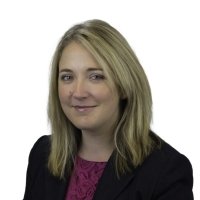 Lisa SharlandDeputy Director of Defence, Strategy & National Security and, Head of the International Program, Australian Strategic Policy Institute (ASPI)
Lisa SharlandDeputy Director of Defence, Strategy & National Security and, Head of the International Program, Australian Strategic Policy Institute (ASPI)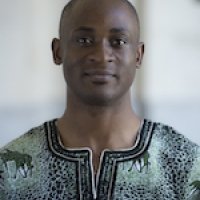 Fritz NganjeFormer Public Policy Scholar;
Fritz NganjeFormer Public Policy Scholar;
Researcher, Institute for Global Dialogue, South AfricaAnatole AyissiChief of Staff, UN Regional Office for Central Africa (UNOCA)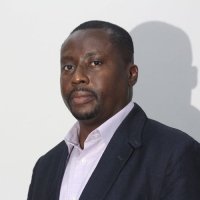 Franklin OduroDeputy Executive Director/Director of Programs , Ghana Center for Democratic Development (CDD)
Franklin OduroDeputy Executive Director/Director of Programs , Ghana Center for Democratic Development (CDD)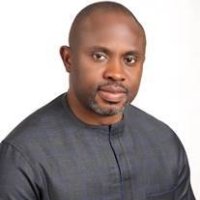 Chukwuemeka EzeExecutive Director, West Africa Network for Peacebuilding (WANEP)
Chukwuemeka EzeExecutive Director, West Africa Network for Peacebuilding (WANEP)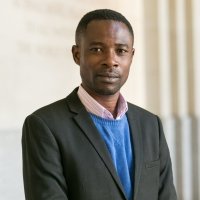 Osei Baffour FrimpongFormer Southern Voices Network for Peacebuilding Scholar;
Osei Baffour FrimpongFormer Southern Voices Network for Peacebuilding Scholar;
Lead Regional Researcher and Conflict Analyst, West Africa Network for Peacebuilding (WANEP), Ghana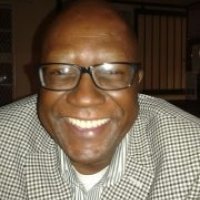 Gilbert KhadiagalaProfessor of International Relations and Director of the African Centre for the Study of the United States (ACSUS) at the University of the WitwatersrandDimpho DelegliseAssociate Research Fellow, United Nations University Institute on Comparative Regional Integration Studies (UNU-CRIS)
Gilbert KhadiagalaProfessor of International Relations and Director of the African Centre for the Study of the United States (ACSUS) at the University of the WitwatersrandDimpho DelegliseAssociate Research Fellow, United Nations University Institute on Comparative Regional Integration Studies (UNU-CRIS) Phil ClarkProfessor of International Politics, SOAS University of LondonJens PedersenSenior Humanitarian Policy Advisor, Medecins Sans Frontieres (MSF), South AfricaIbrahim GambariFormer Head of the United Nations/African Union Mission in Darfur, and Founder and Former Chairman of the Savannah Centre for Diplomacy, Democracy, and Development (Nigeria)Rachel SweetAssistant Professor of Politics and Global Affairs, University of Notre DameAlex VinesResearch Director and Head, Africa Programme, Chatham HouseAdekeye AdebajoDirector, Institute for Pan-African Thought and Conversation, University of Johannesburg (South Africa)
Phil ClarkProfessor of International Politics, SOAS University of LondonJens PedersenSenior Humanitarian Policy Advisor, Medecins Sans Frontieres (MSF), South AfricaIbrahim GambariFormer Head of the United Nations/African Union Mission in Darfur, and Founder and Former Chairman of the Savannah Centre for Diplomacy, Democracy, and Development (Nigeria)Rachel SweetAssistant Professor of Politics and Global Affairs, University of Notre DameAlex VinesResearch Director and Head, Africa Programme, Chatham HouseAdekeye AdebajoDirector, Institute for Pan-African Thought and Conversation, University of Johannesburg (South Africa)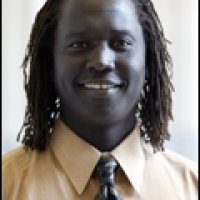 Jok Madut JokFormer Fellow;
Jok Madut JokFormer Fellow;
Professor, Syracuse University and Senior Researcher, The Sudd Institute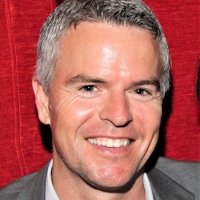 Terence McNameeGlobal Fellow;
Terence McNameeGlobal Fellow;
IndependentPaul MellyConsulting Fellow, Africa Programme, Chatham House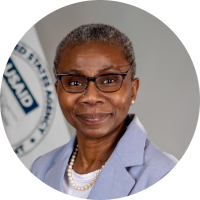 Monde MuyangwaAssistant Administrator, Bureau for Africa, USAID
Monde MuyangwaAssistant Administrator, Bureau for Africa, USAIDEditors
 Terence McNameeGlobal Fellow;
Terence McNameeGlobal Fellow;
Independent Monde MuyangwaAssistant Administrator, Bureau for Africa, USAID
Monde MuyangwaAssistant Administrator, Bureau for Africa, USAIDAfrica Program
The Africa Program works to address the most critical issues facing Africa and US-Africa relations, build mutually beneficial US-Africa relations, and enhance knowledge and understanding about Africa in the United States. The Program achieves its mission through in-depth research and analyses, public discussion, working groups, and briefings that bring together policymakers, practitioners, and subject matter experts to analyze and offer practical options for tackling key challenges in Africa and in US-Africa relations. Read more
Browse Insights & AnalysisExplore More
Browse Insights & Analysis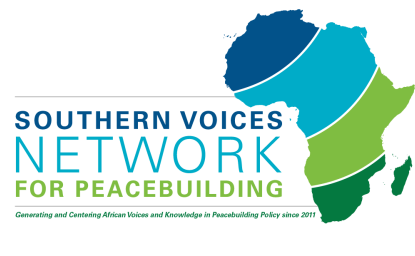
The Southern Voices Network for Peacebuilding
Posted date/time: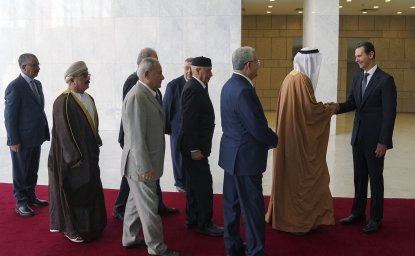
Why Attempts at Normalizing with Assad Didn’t Turn the Page on Syria
Posted date/time:
Без войны виноватые
Posted date/time:
